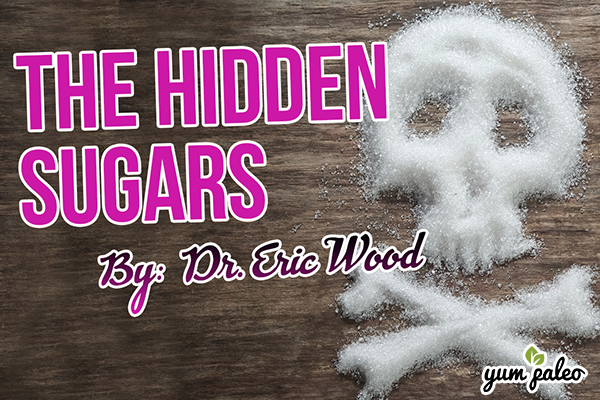Are you aware of the hidden sugars in your food? Here’s Dr. Eric Wood to teach us more about label reading, carbs, and hidden sugars.
In this video, he will reveal shocking facts like how much ‘HIDDEN’ sugar is found in everyday food items.
The Importance of Label Reading
Label reading is a very important practice because if you know how to read a label, you can circumvent a lot of health problems and nutritional mishaps that are bound to happen.
By simply understanding what you’re eating, you’ll be able to keep yourself healthy.
Know what to look for in a label, specifically when it comes to carbs, sugar, and fiber.
Everyday food with HIDDEN sugars
#1. KETCHUP
Lots of people enjoy ketchup, it’s a great condiment. It goes great with fries and all kinds of things. However, ketchup is a really sneaky source of sugar.
Just how much sugar?
We measured out 26 teaspoons (130 grams) of sugar in a bottle of ketchup. So, in case you didn’t really think there’s a whole lot of sugar in ketchup, THINK AGAIN.
We already know what sugar does to us and ketchup is a really sneaky source of sugar.
#2. WHITE BREAD
In 2 slices of White bread, we have a total of 35.7g of carbs, 1.59g of fiber, and 2.5 added grams of sugar. It doesn’t sound so bad, right?
Well, think again. The total carbs minus fiber equals carbs that TURN into sugar.
So we take 35.7 and take away the 1.9g of fiber, we’ve got about 33 or so grams of sugar, essentially, in two slices of bread.
#3. RICE
Rice seems pretty innocuous in itself.
We have about 415 calories in a little packet; most of it coming from carbs – 45g of carbs per serving. Look at how many serving sizes are there in a pack – there’s two.
So, there are 4 grams of total fiber. And what does that leave us with? 86 grams of carbs that CONVERT to sugar quickly. There’s very little fiber.
#4. POTATO
Here’s a food we refer to as ‘The White Menace’.
You might think that white potatoes have no added sugar. However, regular potatoes don’t tend to have a lot of fiber. They have a lot of CARBS that QUICKLY TURN into sugar.
Given that the regular potato is about 42g, we’re talking about 42g of sugar in here. That’s about the same as we have when we measured the teaspoons of sugar in a Coke can.
So, if you think you’re having a potato and you’re eating really healthy – not quite so much.
#5. YOGURT
We have a pretty small serving of yogurt here (in this video), but even this little container of yogurt has two and a half teaspoons of sugar.
So, where can you get away from sugar? It’s everywhere.
#6. CHOCOLATE MILK
Kids love chocolate milk, but we’ve got 33.8g of carbs and 29.6g of sugar in it; some of which are from the sugar that naturally occurs in the milk. Remember, the no.2 ingredient in milk is sugar.
What does this mean for you when it comes to label reading, as a takeaway?
Importance of Fiber
Look at the fiber you get, then subtract that from any carbs.
To lower your net of carbs consumption, it’s really important for you to look at how much glucose you’re taking in.
Don’t forget, Fiber slows down the impact of any sugar that we ingest whether it’s added sugar or a carb that converts quickly into sugar.
Know how much sugar they’re actually adding to the product and that tells you how much is there.
Total Carbs
Look at the total carbs, it’s really a big number that a lot of people don’t understand. It’s the total amount of what is quickly processed into sugar.
Our bodies are designed to store a lot of sugar, so when you’re choosing your food, always be careful with those that contain high carb and low fiber, it’s really going to spike that insulin and cortisol.
And when you can’t burn it – it turns to fat.
Also, watch out for the white menace foods and watch out for those empty carbs.


I’ve found loads of helpful information on your website this page in particular. Many thanks for sharing.